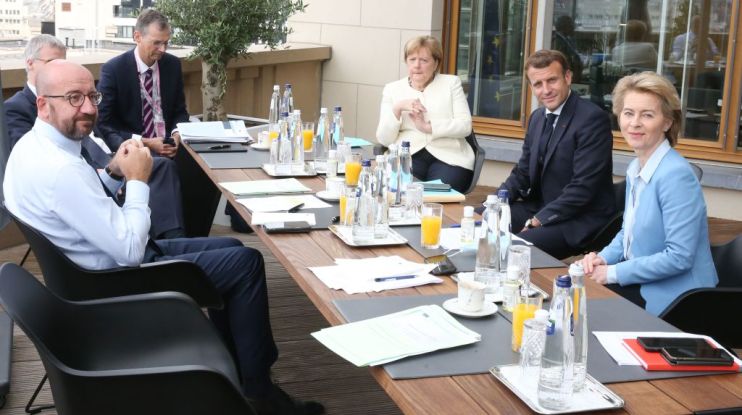Coronavirus: EU leaders struggle to make progress on €750bn fund plan

EU leaders are still trying to reach an agreement on a proposed €750bn (£680bn) coronavirus emergency fund, with the acrimonious talks yielding little on the first two days of the Brussels summit.
Talks are deadlocked on the summit’s third day, with the more fiscally conservative EU countries – such as the Netherlands, Austria, Denmark and Sweden – wanting the package to be administered in loans and not grants.
This has sparked a number of heated conflicts, with Polish Prime Minister Mateusz Morawiecki yesterday accusing the fiscally conservative countries of being “misers”, while German Chancellor Angela Merkel and French President Emmanuel Macron walked away from talks in frustration at one point.
Italian Prime Minister Giuseppe Conte said the EU was “under the blackmail of the frugals”, while Hungarian strongman Prime Minister Viktor Orban has accused Dutch Prime Minister Mark Rutte of trying to use the talks to blackmail his country into making democratic reforms.
Orban has said he would veto the package if it is linked with conditions that would force him to impose liberal reforms in Hungary.
Conte said the talks had been “more complicated than expected”.
Merkel added: “I still cannot say whether we will find a solution.
“There is a lot of goodwill but also many different positions.”
The proposed plan would see the EU countries collectively take on €750bn of debt through issuing so-called coronabonds in what would be a large step toward further financial integration for the bloc.
The funds would be handed to countries on the basis of need, with the debt split between the countries.
Many of the northern European countries are unhappy at the prospect of taking on debt for funds that could disproportionately go to southern and eastern countries that have not fared as well during the pandemic.